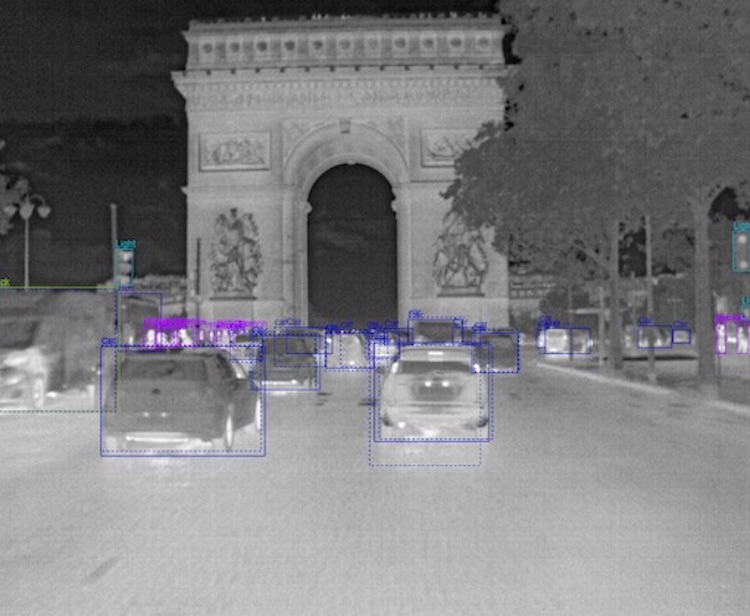FLIR releases European thermal imaging dataset for automotive driver assistance development
FLIR Systems has made available its first European thermal imaging regional dataset and the third in a series of thermal imaging datasets for machine vision testing.
The company says the dataset is designed to help researchers, developers and auto manufacturers enhance and accelerate work on safety, advanced driver assistance systems (ADAS), automatic emergency braking (AEB) and autonomous vehicle systems.
The dataset features thousands of annotated thermal images of daytime, nighttime and various weather scenarios from six cities across Europe.
The new European regional dataset includes image annotations captured in London (England); Paris (France); Madrid, Toledo, Granada and Malaga (Spain).
Collected with FLIR thermal and RGB cameras to identify various attributes of city landscapes, the dataset contains a total of 14,353 annotated thermal images to increase testing and evolving convolutional neural networks (CNN).

The images were taken in a variety of driving environments in each city, including various lighting and weather conditions.
Similar to the previously released thermal imaging datasets for San Francisco, California and Santa Barbara, California, the European dataset includes image annotations for cars, other vehicles types, people, bicycles and signs.
The two previous datasets have been downloaded 5,000 times and the new images and videos from the European dataset will be added to the growing library of available video and images to further speed up CNN training of thermal data.
By incorporating the thermal dataset into automotive design and development, researchers and developers can develop more reliable systems due to thermal imaging’s ability to classify objectives.
Mike Walters, VP of product management thermal and machine vision cameras at FLIR Systems, says: “By expanding FLIR’s thermal machine vision dataset offerings to include major European cities, we are further enabling researchers and developers to jumpstart the use of thermal imaging to enhance automotive safety.
“To help make roads safer, the combination of thermal imaging and AI with visible light cameras, LIDAR, and radar, allows automakers to create more comprehensive and redundant systems for identifying and classifying roadway objects and pedestrians.”
With more than a decade of experience in the automotive industry, FLIR continues to develop and innovate an end-to-end approach to thermal in ADAS, AEB and AV systems.
In addition to creating new machine vision datasets, there are more than 700,000 automotive-qualified FLIR thermal sensors in driver warning systems from automakers including General Motors, Volkswagen, and Mercedes-Benz.
FLIR’s testing has shown that thermal cameras can significantly improve the performance at night over current AEB systems that use radar and visible cameras which is especially valuable as most pedestrian accidents are at night.
As a result of this testing and capability, FLIR is now currently working with several robotaxi companies, automotive manufacturers and tier-one suppliers such as Veoneer, to bring this capability to market for AEB and AV purposes.

